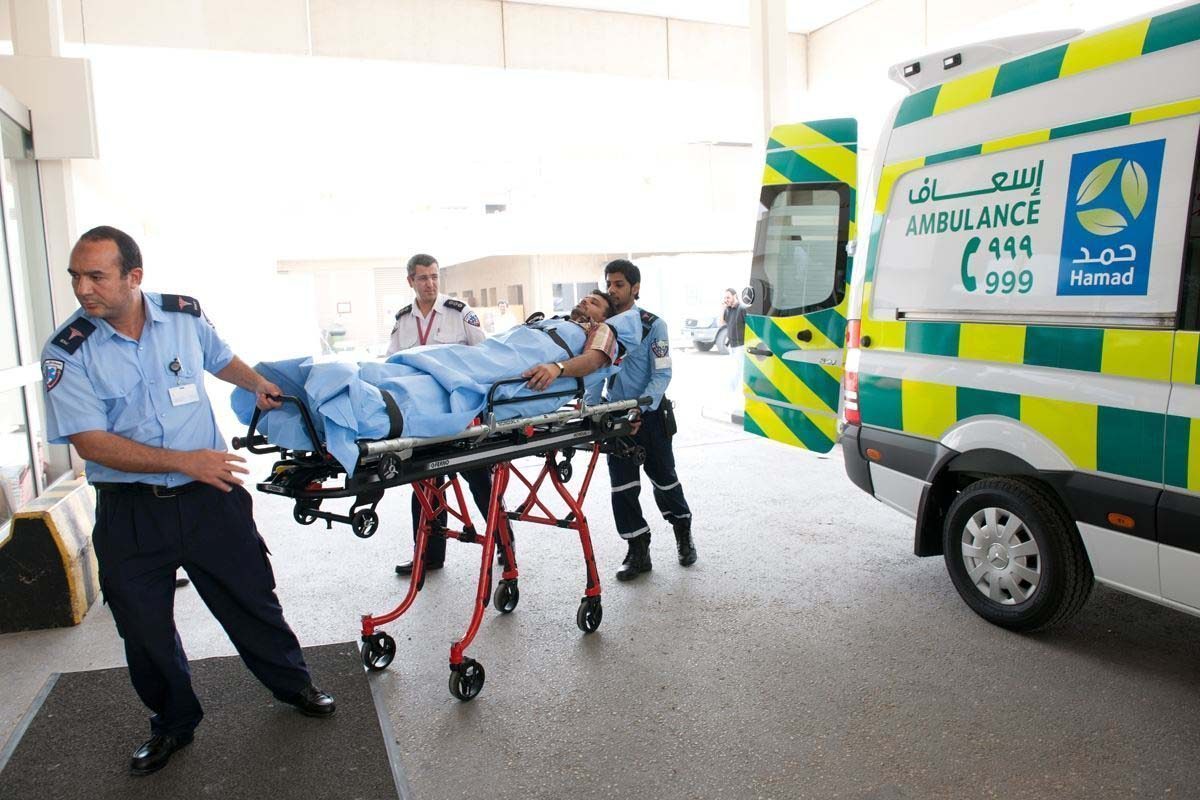
Plans to roll out a nationwide health insurance scheme that was scheduled to cover Qatar’s expat population by the middle of this year have been delayed until at least the end of 2016, a senior official has said.
The insurance program Seha (“health”) launched in August 2013 and was being implemented in phases. Initially open to Qatari girls and women over the age of 12 years old, it was extended to cover healthcare for all Qataris last April.
According to the original timeline, Seha was supposed to have been extended to cover white-collar and then blue-collar expats by the middle of this year.

However, plans have now been postponed for at least 18 months to allow the National Health Insurance Company (NHIC) to try to tackle some of the many problems the implementation of the scheme has raised, including overcrowding at private hospitals.
The new program was introduced under Law No. 7 of 2013 on the Social Health Insurance Scheme.
Previously, Qataris received free healthcare only in a limited number of state-run hospitals and local clinics. But now, more than 190 privately-run hospitals, clinics, health centers, opticians and other services accept Seha insurance.
As thousands more people opt to visit these facilities instead of the public ones, many clinics have been straining to meet demand, prompting patients to complain of long waiting times to see a doctor.
Qataris can use any of the participating services, with their treatment paid for by the state.
Meanwhile, all expats will eventually be required by law to have their medical insurance paid for by their companies, although currently this is optional. As a result, many expats do not have health insurance and rely on the government-funded hospitals and clinics for treatment.
This combined with Qatar’s rapidly expanding population is also putting a strain on services. The country has the GCC’s fastest-growing healthcare sector, according to one report published last year.
Service strain
In the 18 months since Seha was first launched, it has dealt with more than 1 million visits from patients, NHIC acting CEO Dr. Faleh Mohamed Hussain Ali said, according to the Qatar Tribune.

With an estimated Qatari population of around 300,000, this equates to more than three visits per national.
Complaints started to soar as the system was extended last April to cover all Qataris, and Ali admitted that some providers had been “overwhelmed” by demand.
At the time, he told Doha News:
“We told them from the beginning that our base of customers is going to be the entire nation. So I think they didn’t actually do their homework properly and they were not ready to actually realize how much pressure is going to be there in the system.”
One of the main reasons for the long waits appears to be the reliance by many clinics and surgeries on providing treatment on a drop-in basis, rather than by appointment.
Commenting on the latest delay, Ali is quoted by the Qatar Tribune as saying:
“I feel that these providers can manage it better. What they are doing is they are operating it as a walk-in clinic. They system of getting prior appointment will be better.
They have to learn how to deal with these cases. We can give them advice but we cannot control the system.”
However, expanding the program to cover the entire population would be a significant step, and before it is done a number of changes need to be made, Ali admitted yesterday.
The reforms include improving the electronic system used by providers and training staff. He also said that the kind of services to be provided to expats and their families has still to be decided, while the means by which employers will pay for the services has also not been finalized.
New facilities
To help cope with demand, the Supreme Council of Health (SCH) and Hamad Medical Corp. (HMC) are leading plans to expand the number of healthcare facilities in the country.
Three new hospitals, including a women’s hospital and surgical hospital, are under construction in Hamad Bin Khalifa Medical City, with a completion deadline of the end of this year.

However, the new women’s hospital appears to have a much smaller capacity than the existing facility.
Other HMC and private hospitals are expected to pick up the shortfall, including Sidra Medical and Research Center, which has faced years of delays.
Additionally, an HMC communicable diseases hospital is also under construction and is set to open this year, and three hospitals dedicated to male laborers – in Mesaieed, Ras Laffan and Doha’s industrial area – are also planned for this year.
It is hoped that directing workers to these facilities will ease some of the pressure on HMC’s emergency departments, which are regularly used by low-income workers who do not have private medical insurance and cannot afford to attend private clinics for basic treatment.
Thoughts?







